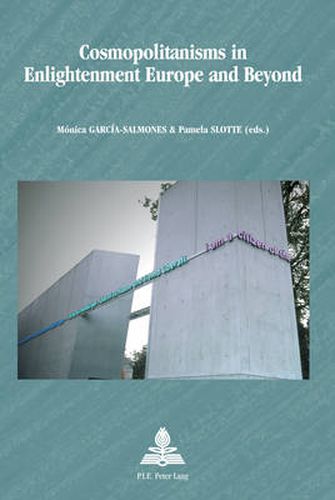Readings Newsletter
Become a Readings Member to make your shopping experience even easier.
Sign in or sign up for free!
You’re not far away from qualifying for FREE standard shipping within Australia
You’ve qualified for FREE standard shipping within Australia
The cart is loading…






This volume offers critical, historical and theoretical perspectives on cosmopolitanism, paying attention to its implications and manifestations both within and outside Europe. It also explores the links between cosmopolitanism and teleological understandings of Europe: there is an idea of progress not far below the surface of the concept, but what does it mean and what is its ultimate aim? Through this analysis, the authors uncover several cosmopolitanisms originating and playing out in different periods of European history, most notably during Antiquity and during the European Enlightenment. The book shows that some of the languages of cosmopolitanism did not originate in or locate themselves exclusively in Europe, but that they nonetheless spread through connections with that continent, most commonly through the colonial encounter. The study contains valuable historical analyses of cosmopolitanism in context, in Europe, Russia, the Ottoman Empire and Africa. The book is based on papers presented at the conference Revisiting the Imaginations of Europe and the World: Coming to Terms with Teleologies and Assessing Cosmopolitanism , held at the University of Helsinki in 2010.
$9.00 standard shipping within Australia
FREE standard shipping within Australia for orders over $100.00
Express & International shipping calculated at checkout
This volume offers critical, historical and theoretical perspectives on cosmopolitanism, paying attention to its implications and manifestations both within and outside Europe. It also explores the links between cosmopolitanism and teleological understandings of Europe: there is an idea of progress not far below the surface of the concept, but what does it mean and what is its ultimate aim? Through this analysis, the authors uncover several cosmopolitanisms originating and playing out in different periods of European history, most notably during Antiquity and during the European Enlightenment. The book shows that some of the languages of cosmopolitanism did not originate in or locate themselves exclusively in Europe, but that they nonetheless spread through connections with that continent, most commonly through the colonial encounter. The study contains valuable historical analyses of cosmopolitanism in context, in Europe, Russia, the Ottoman Empire and Africa. The book is based on papers presented at the conference Revisiting the Imaginations of Europe and the World: Coming to Terms with Teleologies and Assessing Cosmopolitanism , held at the University of Helsinki in 2010.